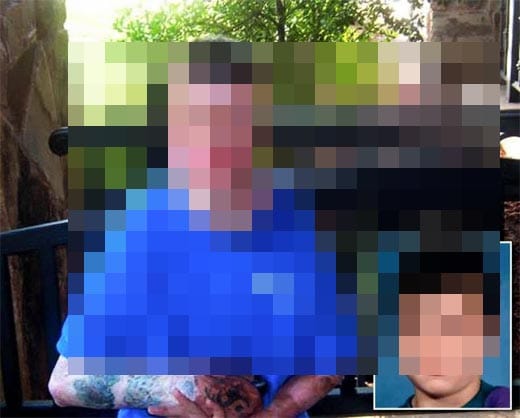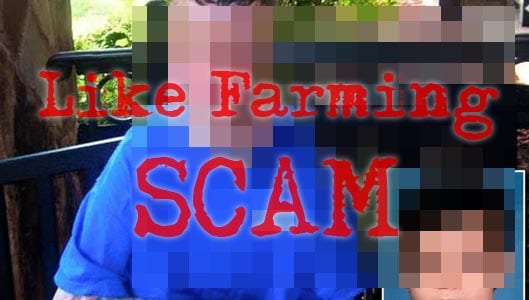Photo of severely burnt male requesting prayers spreads again
A photo showing a severe burns victim is a photo that is no stranger to Facebook, with many posting the photo under a variety of pretences, many of them false.
The photo – which we have chosen to blur out below – shows a boy named Robbie Middleton, who was set on fire when he was 8. Despite 99% burns, Robbie went on to live until he was 20, sadly passing away in 2011 from a rare form of cancer that his doctors say was a result of his injuries and subsequent operations.
It was recently announced that his accused attacker – Donald Collins – is to be tried as an adult for the crime. Collins was 13 when he was accused of burning Robbie.
However the photo has been used in the past by many immoral folk on Facebook to garner likes for Facebook pages, attributing false or misleading captions to the photo.

A blurred out example of the photo scammers use to post on Facebook.
In 2013 the photo was used to entice people into liking or sharing his image in an example of a like-farming scam, which posted the photo to attract followers for a particular Facebook page. The photo was spread with the caption that asserted a like equated to one prayer, and a share equated to 100 prayers.
Please Don’t Ignore! He needs your prayers badly Texas boy burned at 8 says in deathbed video that attacker raped him beforehand.
1 Like = 1 Prayer
1 Share = 100 Prayers
Asserting that actions on Facebook can in any way equate to prayer is an absurd notion that is essentially capitalising on the good nature of many for the ultimate profit of the like-farming scammer. Many life-farming scams work in this manner, and you can read our article on such scams here.
The photo resurfaced again in 2015, this time posted by a Facebook page called Wes Michaels, a “band/musician” page that claims to be from LA, California. The photo was originally uploaded with a caption that falsely asserted that the boy was burnt while “saving his sister” and urged users to comment on the photo – another tactic used by like-farming scammers to help their posts go viral.
This young boy severely burned himself saving his little sisters life. Please pray for him. Don’t scroll down without commenting, Amen.
The post was later modified by the Wes Michaels page admin to omit the false statement about the sister, but still urges users to comment on it.
Sponsored Content. Continued below...
Of course none of the people who use the photo have requested permission from Robbie’s parents or legal team to do so, and ultimately use the photo for their own gain. The more people who like, share and comment on such a photo, the more viral it goes across Facebook, attracting attention for both the post and the Facebook page that posted it, which results in added marketing value for the Facebook page which accumulate followers.
These posts essentially exploit those who believe in the power of prayer, and it is worth remembering for those people that clicking like or share doesn’t amount to actual prayer. Be aware that these posts and the people behind them have no real concern for the people they depict and recall, they’re simply looking for their content to go viral across social media.
Also we discuss how like-farming scams exploit photos of sick, injured or even deceased children in more detail here.
Continued below...
Thanks for reading, we hope this article helped, but before you leave us for greener pastures, please help us out.
We're hoping to be totally ad-free by 2025 - after all, no one likes online adverts, and all they do is get in the way and slow everything down. But of course we still have fees and costs to pay, so please, please consider becoming a Facebook supporter! It costs only 0.99p (~$1.30) a month (you can stop at any time) and ensures we can still keep posting Cybersecurity themed content to help keep our communities safe and scam-free. You can subscribe here
Remember, we're active on social media - so follow us on Facebook, Bluesky, Instagram and X
